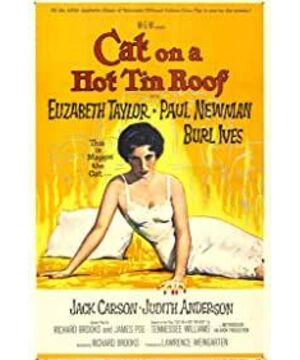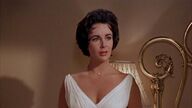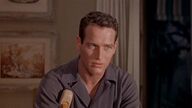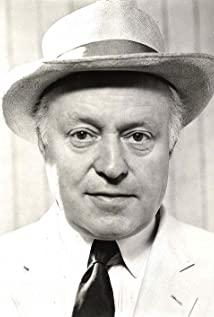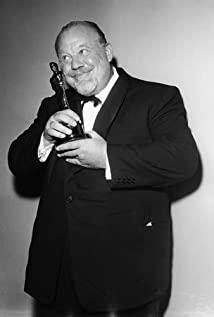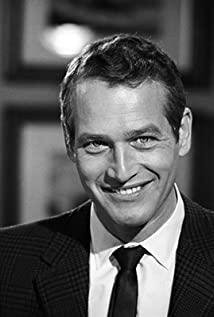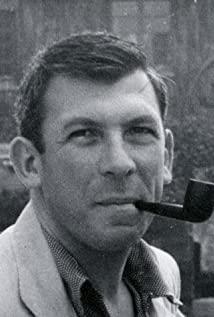I have watched the movie "Cat on a Hot Tin Roof" (Hong Kong translation of "The Clever Woman") starring Taylor and Newman under the recommendation of a friend, and I have some feelings to write down.
The film is adapted from the play of the same name created by Tennessee Williams. The original story tells the tragedy of a large southern plantation owner's family full of hypocrisy and lies. The head of the family, "Daddy Dad", died of cancer shortly afterwards, and his two sons and their wives came to attend his birthday party. The eldest son, Coopers and his wife, are bent on earning a huge fortune; while his father's favorite brother Brick is drunk because of self-doubt of homosexuality. He is still alive and dead.
The film has two important adaptations to the original in the plot setting. One is about the cause of Brick's alcoholism, and the other is based on the New York performance book, which emphasizes the "satisfactory ending" of Brick's reconciliation with his father and himself.
"Cat on a Hot Tin Roof" won the second Pulitzer Prize for Tennessee Williams after "A Streetcar Named Desire" and is one of its most important masterpieces. This adapted film also won 11 nominations in 1959, including the Oscars, the American Film Golden Globes, and the British Academy of Film and Television Arts. It can also be a classic.
(1) "Deception is our way of life, drinking is one way out, and death is another way out."
I can't help but talk about the male and female starring in this pair of "Birener". There is no need to say more about the beauty of Taylor’s violet eyes. What’s interesting is that after seeing Paul Newman’s blue and melancholy eyes, director Richard Brooks decided to make a color film, so this film also became The first color film adapted from the works of Tennessee Williams. Elizabeth Taylor's performance in the movie is certainly good, but in terms of performance, Paul Newman, who plays the role of Brick, is even more admirable and admirable.
At the beginning of the conversation between Brick and Maggie, Maggie talked for a whole paragraph, he just pushed gently, repeated the last sentence, and added a question mark at the end. She said quietly, and he kept drinking. Maggie couldn't help feeling: "Your look is so cold, so cold, so cold that makes people jealous." One is politely indifferent, slow and detached, and the other is a sharp high-profile door that cannot be rushed leisurely, comparing the two. The relationship between people is awkward and wonderful, but this combination is nothing new, and the play does not simply stop here.
In the stage prompts of the original script, Williams must emphasize every passage about Brick: The following scene should be performed intensively to emphasize the importance and difficulty of character creation. Personally, Paul Newman's performance is surprising. When Brick came out, the daylight shining in from the balcony, although it was still warm, had gradually dimmed, leaving only a small touch on him. Those light blue eyes are always polite but indifferent, and behind this elegance, when Brick and Maggie quarrel fiercely, or in the "safe solitude" of only oneself, or In trying to truly open his own conversation, he will burst out the emotions hidden in his heart. All these make people think of the images of "painful young masters" in American southern literature. They had a pursuit in their hearts, but the fire slowly extinguished, and they "refuse to grow up", hate hypocrisy and lies, claim to seek the spiritual father, but never face the truth. What's even more ironic and sad is that the "society" they most sneered at has actually left a mark in their hearts that they can't erase.
The intense restlessness deep in his heart made Brick desperate for a balance. As a result, there is this wobbly image of a wine glass in one hand and a cane in the other hand. At the end of the movie, an emotional outpouring in the basement is imposed, shifting the focus from the contradiction between "homosexual love" and "social morality" to exploring love and trust in a small family. It seems that the director deliberately avoids talking about certain topics, and wants to find his own solution to the protagonist’s plight: Brick angrily smashes the useless luxury goods his parents bought from Europe in the basement and his past glory in the football team And memory, and finally decided to reconcile with his father. Personally, I don't think this change is a good deal, but Newman, who shouted "you can not buy love" in the cramped space filled with large sculptures, was really painful and he couldn't help but sigh in secret. Release and shouting are certainly moving, but I think that what really sees performance is how to conceal the superficial transcendence over the pain and torture in one's heart, without revealing it and saying nothing. The so-called "truth" of past events seems to never be known, but we can feel the changes through the disharmony between Brick's "narration of the matter in words" and "unintentional feelings". Struggling inner world.
Brick doesn't love Margaret, why marry her? What kind of feelings does he have for his companion Skip? What does the score between Chicago and the Southern Star imply? Why is he always ridiculing him while thirsting for his father's love? Skip chose to commit suicide, while Brick wanted to use alcohol in exchange for a moment of peace in his brain-in fact, he deceived himself. His pain and contradiction not only come from society, but also from his heart. In other words, his tragedy is not defeat, but surrender.
(2) "What is the victory of the cat on the hot iron roof? I really want to know. I think it is probably staying on the roof as long as it can stay."
This is the charm of Margaret's role. Compared with Brick in one hand with a wine glass in one hand and a cane in one hand, "the look is so cold as to be jealous", what Margaret wants is not how to find balance and peace in a spiritual crisis. She is more like a firm-willed activist in her speech. This is a typical thinking of a strong man-she is selfish, selfish and magnanimous and beautiful, she does not shy away from talking about her birth and past, and she knows how to endure in a timely manner and is desperate to throw the trump card ( "I can speak quietly, as long as it doesn't tell me to shut my mouth completely"). At the end of the third act of the first draft of the script, we saw that it was Margaret who finally grabbed the crutch in Brick's hand and threw it out the window. She turned around and announced: You have lost.
It seems to be easy to see-Margaret and Big Daddy admire each other (but it's not that Maggie said at the beginning that Big Daddy coveted her young and beautiful, but because she saw the cuteness of her inner traits), One of the important reasons is that both of them "do not lose their true colors". At the end of the movie, Dad's eyes are full of this appreciation. He doesn't know that Maggie's pregnancy is fake, but he still said: "This girl has life in her body.". "Life" can be said to be the warning and final word of the suspicion from the head of the family, and it can also be seen as his praise for the unyielding vitality of the kitten on the hot tin roof. From this perspective, perhaps only Margaret is the real qualified heir to the big dad "Cotton Kingdom" who said "Only in pain can I feel alive".
I always remember an interesting detail in the script: Marguerite went to the mirror and made a face, staring into the mirror and said: "Who are you?" After that, she arched her body slightly and replied with a sharp voice: "I am a cat. , Maggie!"
(3) What this drama seeks is not the answer to the mystery of the inner world of a mentally collapsed person, but the essence of the life state of a group of people, that is to say, crisis, anxiety, and collapse are all common, and some people use hypocrisy to cover up Some people rely on paralysis to deceive themselves, some show symptoms, and some shout hysterically. In the endless noise of the children, in the slow singing of the black slaves, and in the rainstorm of the Xigun South Manor, these complex, vague, incapable but extremely strong emotions are like large blocks of rain in the sky. Clouds rub against each other and discharge electricity. The interweaving of lies and truth is as ugly as Maggie said.
The beauty of the drama is that it showed us a result at the beginning-people in the drama are not absolutely unwilling to uncover the cause, and in fact, it is just as if we can’t really understand what a “hot tin roof” is. , Who is "cat" and why is "cat" one by one gives absolutely clear answers, even if Brick and Big Daddy break all the cover and analyze their hearts, they obviously can’t ascertain all the status quo. The root cause of the emergence, let alone find the so-called solution.
In the original script, Tennessee Williams unfolds with the contradictions in the family. Personally, he thinks that there is no clear solution in his own heart (in other words, who can have it?), but this is exactly what "Hot Tin Roof "The Cat on the Road" attracts me the most-a chaos and nothingness array. Therefore, any adaptation that attempts to "solve the problem" must actually simplify the problem.
View more about Cat on a Hot Tin Roof reviews


